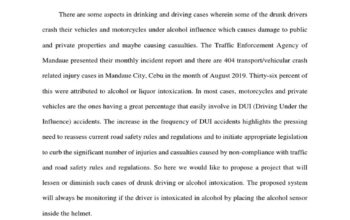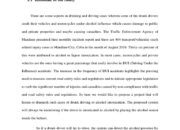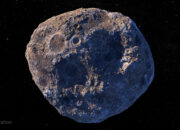The myth of Prometheus, a titan in ancient Greek lore, serves as a profound allegory for humanity’s tumultuous relationship with knowledge and innovation, particularly regarding the acquisition and utilization of fire. In this narrative, Prometheus defies the divine edicts of Zeus by bestowing humanity with fire, an act that catalyzes their ascent from primitive existence to civilization. This essay will explore the multifaceted implications of Prometheus’ gift, examining the duality of fire as a source of enlightenment and a harbinger of peril, alongside the overarching theme of forbidden knowledge.
To comprehend the quintessence of Prometheus’ gift, it is imperative to delineate the multifarious dimensions of fire. Fire symbolizes not only physical warmth and illumination but also the metaphorical spark of intellect that propels scientific inquiry and technological advancement. The advent of fire marked a pivotal moment in human evolution, enabling culinary practices, fostering social cohesion, and facilitating the creation of tools essential for survival. Yet, while fire epitomizes progress, it also embodies a volatile force capable of devastation. This duality mirrors humanity’s conflicting motivation: the aspiration for progress balanced precariously against the potential for self-destruction.
Fire’s transformative potential finds a parallel in the burgeoning realms of modern science and technology. The same faculties that have propelled humanity into the stratosphere of achievement also harbor risks that evoke the essence of Prometheus’ transgression. As empirical knowledge burgeons, particularly in fields such as genetics, artificial intelligence, and nuclear physics, ethical considerations emerge with escalating urgency. Advances in these disciplines challenge traditional moral frameworks, engendering debates that reflect the age-old tension between innovation and ethical responsibility, reminiscent of the titan’s audacious act.
One must consider the contemporary implications of Prometheus in the context of genetic engineering. The manipulation of DNA, while heralded as a quantum leap in medical science, raises profound ethical dilemmas. The prospect of eradicating genetic disorders and enhancing human capabilities tantalizes society; however, it concurrently invokes fears of eugenics and socio-biological stratification. As Prometheus faced retribution for his defiance, so too may modern scientists encounter societal backlash for transgressing moral boundaries in pursuit of knowledge.
Artificial intelligence (AI) further exemplifies this Promethean struggle. The potential for AI to augment human capability is analogous to fire’s role in our evolutionary narrative. Intelligent systems have the potential to optimize industries, enhance decision-making processes, and propel scientific breakthroughs at an unprecedented scale. Nevertheless, as cognitive automatons increasingly permeate daily life, the ethical quagmires multiply, raising concerns about autonomy, privacy, and the essence of being human. The stark dichotomy of AI as a liberating force versus an existential threat is a reflection of Prometheus’ legacy, forcing society to navigate the murky waters between aspiration and annihilation.
Nuclear physics represents another dimension of this complex interplay between insight and folly. The harnessing of atomic energy, initially celebrated as a leap towards limitless power, devolves into existential anxiety owing to the potential for catastrophic consequences. The Hiroshima and Nagasaki bombings serve as poignant reminders of Prometheus’ flame gone awry. The capacity to manipulate the subatomic realm symbolizes the zenith of human inquiry while simultaneously posing grave risks that demand thoughtful regulation and stewardship. In this light, the myth of Prometheus reverberates with profound relevance as society grapples with the dichotomy of beneficent and malevolent uses of knowledge.
The overarching theme of forbidden knowledge permeates the narrative of Prometheus, suggesting a cautionary tale regarding the pursuit of enlightenment. Many historical epochs reveal a societal tendency to resist or criminalize forms of knowledge deemed threatening. The implications of this suppression are notable, as fear often supersedes the illumination that knowledge promises. In a contemporary context, similar trepidations ground debates surrounding scientific inquiries, particularly in fields perceived as encroaching upon moral boundaries. The ethical limitations imposed upon researchers echo the constraints laid upon Prometheus, imbued with an admonishment about the potential ramifications of enlightenment.
Moreover, the Promethean myth interrogates the pursuit of knowledge as an integral facet of human identity. The relentless quest for understanding epitomizes the human spirit, underscored by an innate curiosity that propels scientific exploration. This exploration necessitates a balance. Individuals and societies must weigh the merits of scientific advancement against the ethical implications and potential hazards it engenders. The historical viscerality of Prometheus, bound in eternal punishment for his audacity, prompts contemplation on whether the acquisition of knowledge ultimately serves humanity or leads to its demise.
In summation, the story of Prometheus resonates profoundly within the contemporary discourse surrounding science, technology, and ethics. Fire stands as a multifaceted symbol of enlightenment and peril, embodying humanity’s pursuit of knowledge and the consequent responsibilities it entails. As modern society navigates the intricate terrain of innovation, the legacy of Prometheus serves as both a guiding star and a cautionary tale. The dualities inherent in the gift of fire—its nurturing warmth and destructive capacity—demand ongoing scrutiny, ensuring that the lust for progress does not eclipse the ethical imperatives fundamental to the human condition. To traverse this path, society must strive for an informed balance, recognizing that with great power comes the solemn duty of prudence, reflection, and responsibility.












